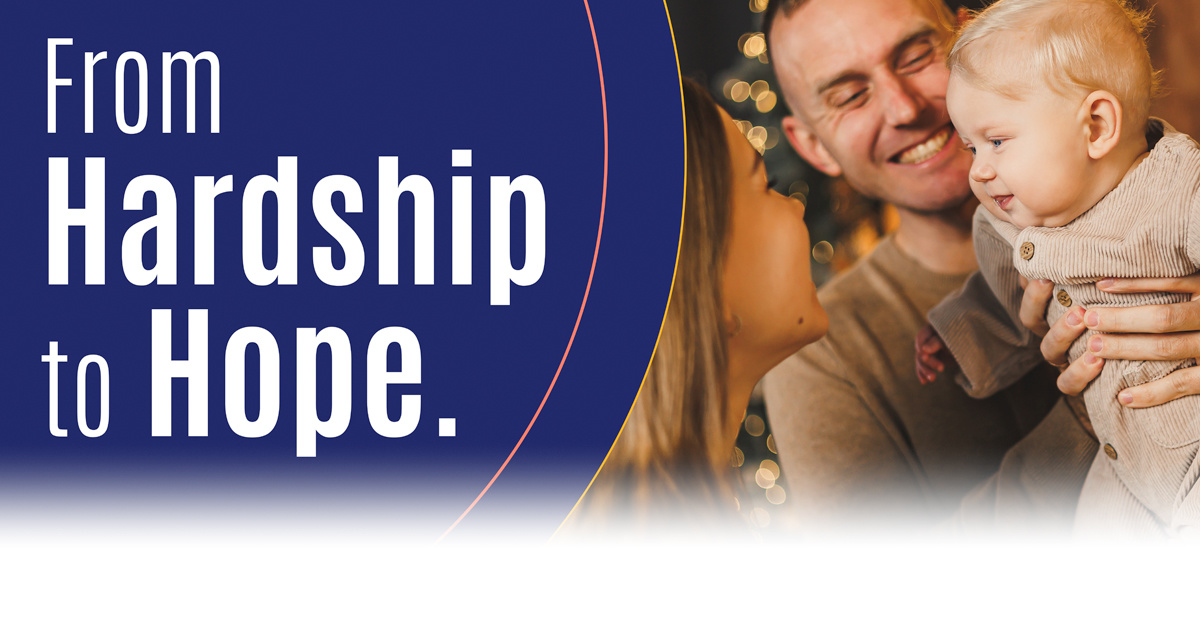
From Hardship to Hope for 260k Neighbors
21% of families - or 260,000 people - in our 7-county region struggle to afford basic needs like food, housing, child care, and transportation. We believe every single one deserves a path to hope.
We’re proud to launch our Hardship to Hope campaign which is a bold, community-wide effort to lift 260,000 of our neighbors from hardship to hope by 2030.
If we do this, it could mean an additional 15,500 individuals in the workforce and a $776,000,000 impact on our local economy.